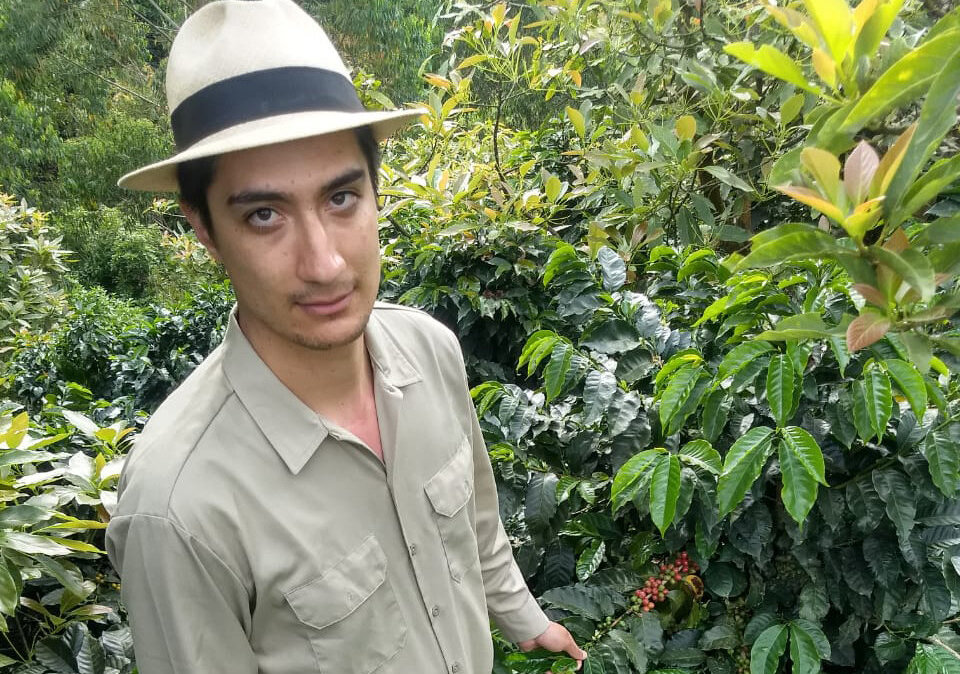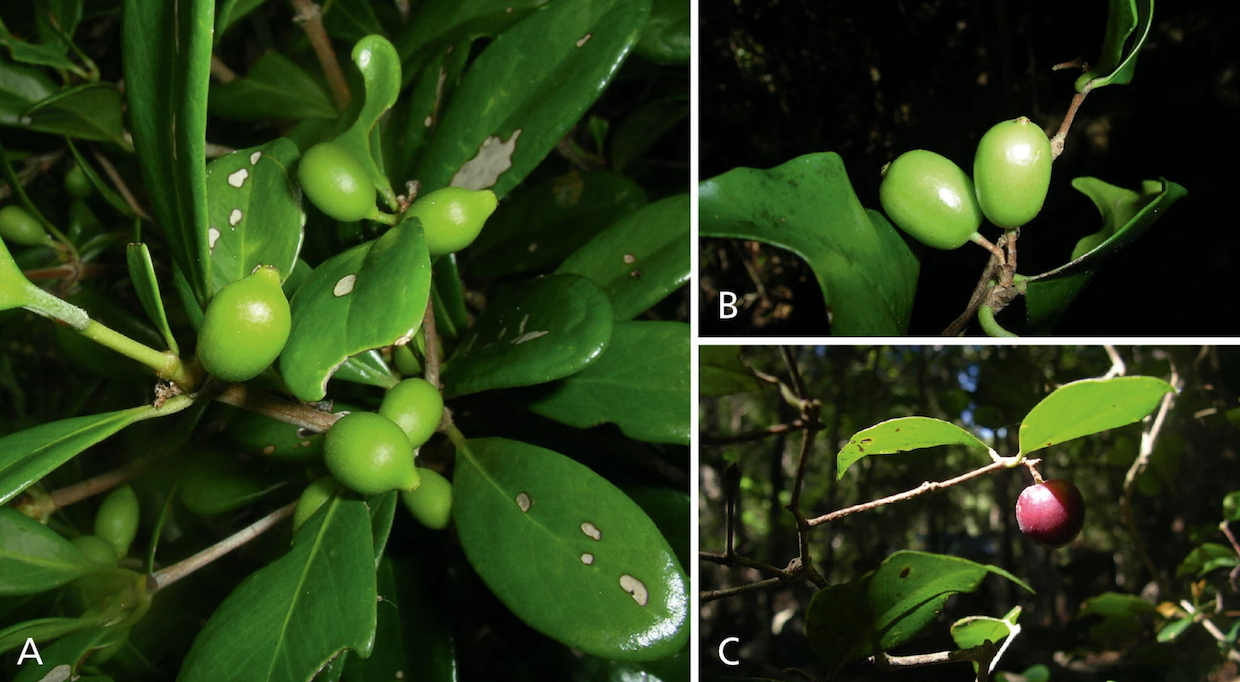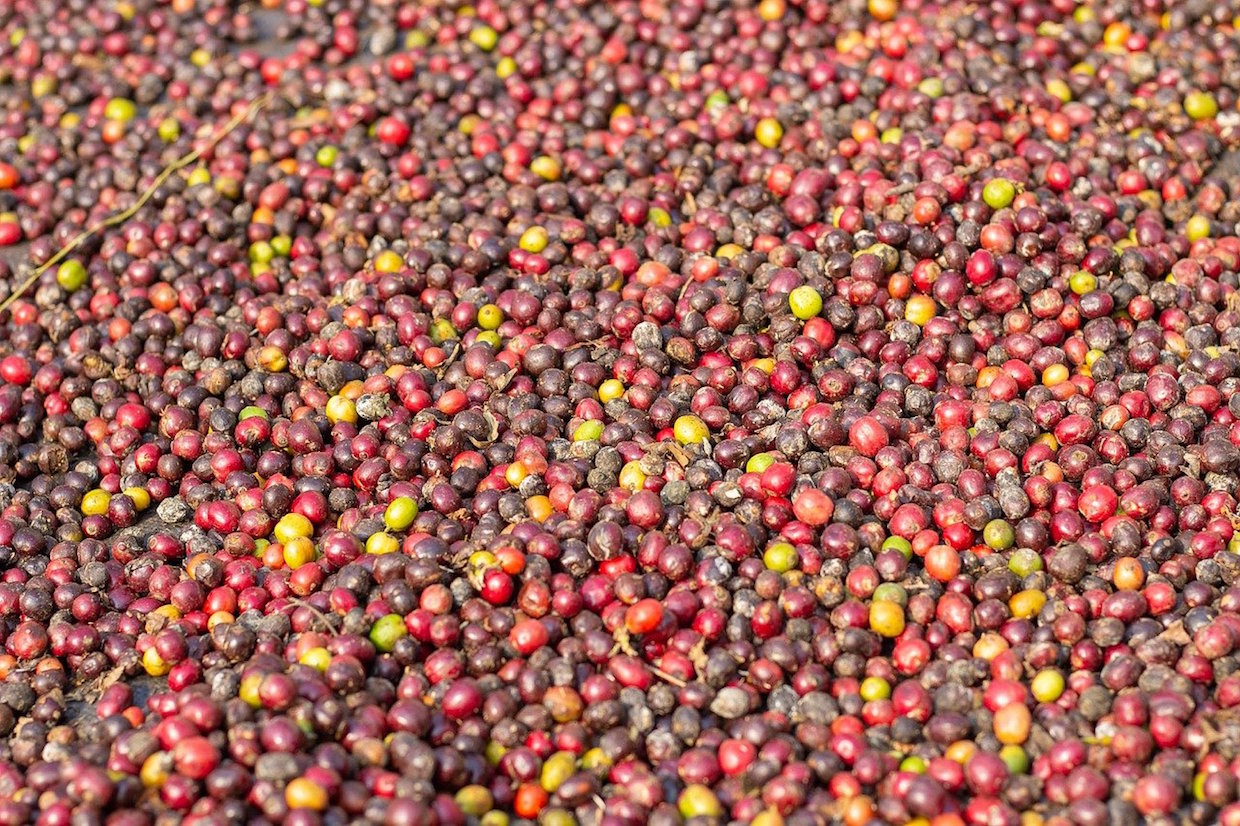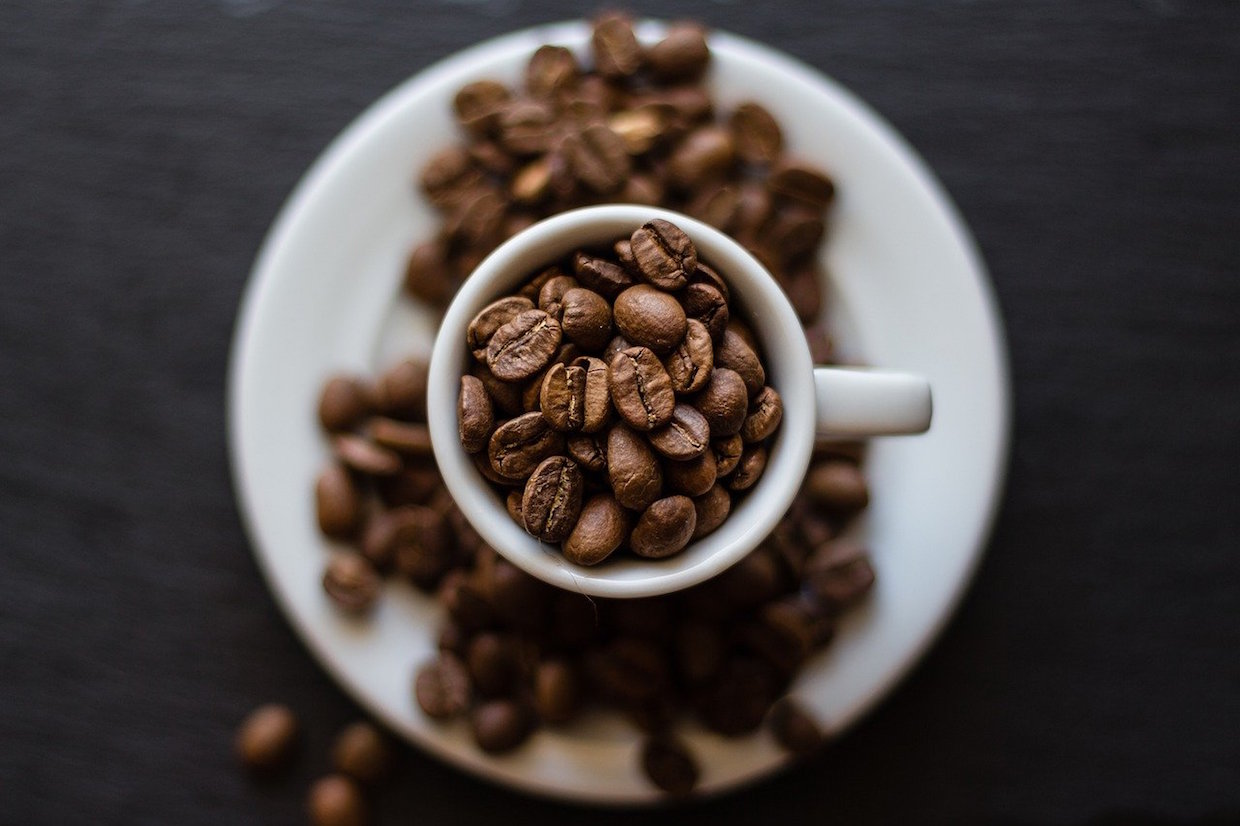After a year in which any research that was non-pandemic-related seemed almost quaint, the scientific output largely resumed course in 2021.
In peer-reviewed study after peer-reviewed study, the academic world politely presented the industry with the current or likely effects of climate change, poverty among coffee-farming communities, pests and disease and impending supply chain shocks.
These are the comets hurtling directly towards planet Coffee, and they are real.
Meanwhile, on the sunnier side of the desk, researchers explored post-COVID market dynamics, factors affecting coffee quality, and a reimagined vision of the “Third Place.”
Of course, plenty of research was devoted to coffee’s effects on human health, where some more good news came to light in 2021, particularly regarding the habitual consumption of black coffee.
Below is our annual review of science and market research news stories, broken into three general sections: Sustainability; Market/Quality; and Health.
[Editor’s note: This feature is part of our ongoing 2021 year-end coverage. Click here for additional stories, updated daily through Dec. 31.]
Sustainability
Coffee Pulp Dramatically Speeds Up Tropical Reforestation, Research Finds
Researchers from the British Ecological Society reported “dramatic results” over the two year length of the study, which focused on post-agricultural land in the coffee lands of Costa Rica, a global leader in sustainable agriculture.
Climate Change Will Alter the Specialty Coffee Landscape in Ethiopia, Study Shows
Incorporating advanced modeling for climates, topography and soils using specific geographical reference points throughout the Ethiopian coffeelands, the research provides a first-of-its-kind prediction of how specific Ethiopian coffee growing regions will be affected through 2090.
What Researchers Learned from the Remarkable Stenophylla Tasting
More than two years after the rediscovery of what’s being popularly referred to as the “lost coffee species” — formally Coffea Stenophylla — researchers have triumphantly offered a potential gustatory alternative to the arabica coffee species in the face of long-term climate change.

Federico Ceballos-Sierra, University of Illinois, surveys coffee plants at his family farm in Colombia. Credit: College of AC ES, University of Illinois.
Colombian Researchers Discover Aggressive New Variants of Coffee Leaf Rust
The troubling findings come from Cenicafé, the Colombian national coffee research institution of the Colombian Coffee Growers Federation (FNC). The group says it has identified six new races (a.k.a. subspecies) of leaf rust in the country, plus nine new variants of the destructive fungus.
Colombian Coffee Lands Likely to Shift Given Current Practices, Research Suggests
New research focused on Colombia suggests that if current conditions and practices persist, climate change will dramatically reshape where arabica coffee can be grown by the middle part of this century.
COVID-19 Shocks Likely to Cause ‘Severe Production Crisis,’ Research Finds
The COVID-19 pandemic is likely to cause a “severe production crisis” as a complex web of socio-economic factors make conditions worse for smallholder coffee farmers, according to groundbreaking new research.
Report: Many of World’s Largest Coffee Roasters Not Able to Ensure Living Income for Producers
Despite sweeping claims made by the coffee industry’s corporate giants regarding sustainability accolades, at least 10 of the world’s biggest coffee roasters have failed to guarantee a living income for coffee farmers in their supply chains, according to a new report from the Columbia Center of Sustainable Development.
Coffee Brands Nearly Doubled Their Sustainability Claims in the Past Decade, Report States
Nearly half (48%) of all new coffee product launches in 2020 boasted at least one ethical or environmental claim, up from 25% nearly a decade ago in 2012, according to a new report from the Mintel Global New Products Database (GNPD).

Field images showing a new species called Coffea darainensis. Citation: Davis, A.P., Rakotonasolo, F. Six new species of coffee (Coffea) from northern Madagascar. Kew Bull (2021). https://doi.org/10.1007/s12225-021-09952-5
Six New Coffee Species Identified in Madagascar
While not likely to be transformed by commercial applications any time soon, the six new species are significant considering coffee’s remarkable lack of genetic diversity combined with the fact that many of the world’s wild coffee species are in danger of extinction.
Fairtrade Report Projects Financial Disasters to Farmers Due to Climate Change
A wide-ranging new study from Fairtrade International suggests that intensifying impacts of climate change will present a financial threat to millions of agricultural producers, including coffee farmers, all over the globe.
How Growing and Consuming Coffee Can Actually Help Forests
While the coffee sector has in many ways taken a leadership role in environmental sustainability, coffee farming continues to be a major cause of deforestation and biodiversity decline in tropical countries, from the Americas across the tropical belt to Australasia.
Research Concludes Climate Change Affects Coffee Quality, Not Just Yields
A new study has concluded that environmental shifts associated with climate change and climate adaptation can indeed affect the quality of coffee. The findings have implications for consumers who prefer higher-quality coffees, farmers and producers who rely on both volume and quality for income, and every other actor in the seed-to-cup nexus.
Markets/Quality
2021 Specialty Coffee Consumption Trends Outlined in New NCA/SCA Report
A kind of specialty-category-focused compendium to the NCA’s annual National Coffee Data Trends publication, released earlier this year, the report illuminates the myriad ways specialty coffee consumption has been altered by the COVID-19 pandemic.
‘Customer-Workers’ Are People, Too: New Research Explores the Evolving ‘Third Place’
The coffee shop as the prototypical “third place” — a place that is not the home (first place) or the workplace (second place), yet provides important social functions — has suffered a series of definitive blows over the past two decades.
The Latest in Coffee Science: Observations from the 2021 ASIC Conference
The Association’s 28th symposium was available to guests in video format due to the ongoing coronavirus pandemic — opening up a plethora of valuable information shared by some of the world’s leading scholars, academics, and professional researchers with interests surrounding coffee.
New Research Finds Specific Compounds that Affect Coffee Mouthfeel
While coffee body in academic and industrial settings is often considered in terms of viscosity, the new research suggests small chemical molecules and our mouths’ receptors may have more to do with the perception of the body than the mere physical viscosity of the brew.
What Is Specialty Coffee? SCA Offers a Fresh Definition
While the specialty coffee industry has continued to gain global market share as compared to its foil, “conventional coffee” or “commodity coffee,” definitions of the term “specialty coffee” have remained largely debatable, blowing around with the prevailing market winds, and subject to individual “I know it when I see it” interpretation.
Fall 2021 Coffee Trends Report Shows Increased Consumption Away from Home
Out-of-home coffee consumption at coffee shops, workplaces and elsewhere in the United States has seen a dramatic rebound to numbers approximating pre-pandemic levels, according to the latest National Coffee Data Trends (NCDT) report from the National Coffee Association (NCA).
Health
Coffee’s Health Benefits Aren’t as Straightforward as They Seem — Here’s Why
You’ve probably heard it before: drinking coffee is good for your health. Studies have shown that drinking a moderate amount of coffee is associated with many health benefits, including a lower risk of developing type 2 diabetes and cardiovascular disease. But while these associations have been demonstrated many times, they don’t actually prove that coffee reduces disease risk. In fact, proving that coffee is good for your health is complicated.
Coffee Consumption Tied to Reduced Prostate Cancer Risk, Study Shows
Coffee consumption may be linked to lower risk of developing prostate cancer, according to a review of 16 different studies involving more than 1 million men. The study also suggested that the more coffee men consume, the lower their risk of developing prostate cancer, noting a “relative risk” reduction of about 1% per each additional daily cup.
Not Spending Time at Coffee Shops Can Drain Our Collective Creativity
While the pandemic has caused thousands of small businesses to temporarily close or shutter for good, the disappearance of the corner coffee shop means more than lost wages. It also represents a collective loss of creativity.
New Research Says Coffee Can Improve Brain Function After Lack of Sleep, Because Duh
Newly published research suggests that consuming caffeinated coffee during the day helps to minimize deficits in attention and brain function caused by sleep loss. There you have it: The entire body of anecdotal evidence of your adult life has been confirmed.
Major Study Suggests Drinking Coffee May Reduce Heart Failure
A meta-analysis just published in a journal of the American Heart Association has found that drinking one or more cups of caffeinated coffee per day was associated with a significantly decreased risk of heart failure.
One Strong Cup of Coffee Before Exercise May Increase Fat Burning, Study Shows
Researchers based at the University of Granada in Spain found that the consumption of about 3 milligrams per 1 kilogram of body weight, or “the equivalent of a strong coffee,” ingested half an hour before aerobic exercise significantly increased the rate of fat oxidation in adult men.
Coffee Doesn’t Help Sleep-Deprived Brains with More Complex Tasks, Research Finds
Coffee contains within it myriad small miracles, yet the ability to perform brain surgery or even operate a motor vehicle at a high level while deprived of sleep may not be among them.
Coffee May Greatly Reduce Risk of Chronic Liver Disease, Research Shows
Consuming coffee is associated with significantly reduced risk of developing chronic liver disease while reducing the risk of dying from liver diseases by nearly half, according to newly published research.
Major Study Associates Coffee Consumption with Better Long-Term Heart Health
New research suggests daily coffee drinking may be good for long-term heart health, with reduced incidence of stroke, cardiovascular disease and even all-cause mortality (death of any kind).
Six or More Cups of Coffee Per Day Increases Dementia Risk, Research Finds
New research has found that people who drank more than six cups of coffee per day were more than twice as likely to develop dementia than people who drank coffee in moderation.
Moderate Coffee and Tea Consumption Linked to Lower Stroke and Dementia Risk
Drinking coffee, tea or both may be associated with a significantly lower risk of stroke and dementia, according to research published yesterday in the peer-reviewed journal Plos Medicine.
Higher Coffee Consumption Associated with Reduced Risk of Alzheimer’s
“We found participants with no memory impairments and with higher coffee consumption at the start of the study had lower risk of transitioning to mild cognitive impairment — which often precedes Alzheimer’s disease — or developing Alzheimer’s disease over the course of the study,” said lead researcher Samantha Gardener of Australia’s Edith Cowan University (ECU).
Study Associates Coffee Drinking with Less Sleep, More Steps
A randomized trial designed to understand the real-time, short-term effects of caffeinated coffee consumption found good news and bad news for coffee drinkers.
National Kidney Foundation Study: Habitual Coffee Consumption Reduces Kidney Stones
Daily coffee consumption may significantly reduce the formation of kidney stones, according to a study recently published in the United States National Kidney Foundation‘s (NKF) American Journal of Kidney Diseases.














Comment